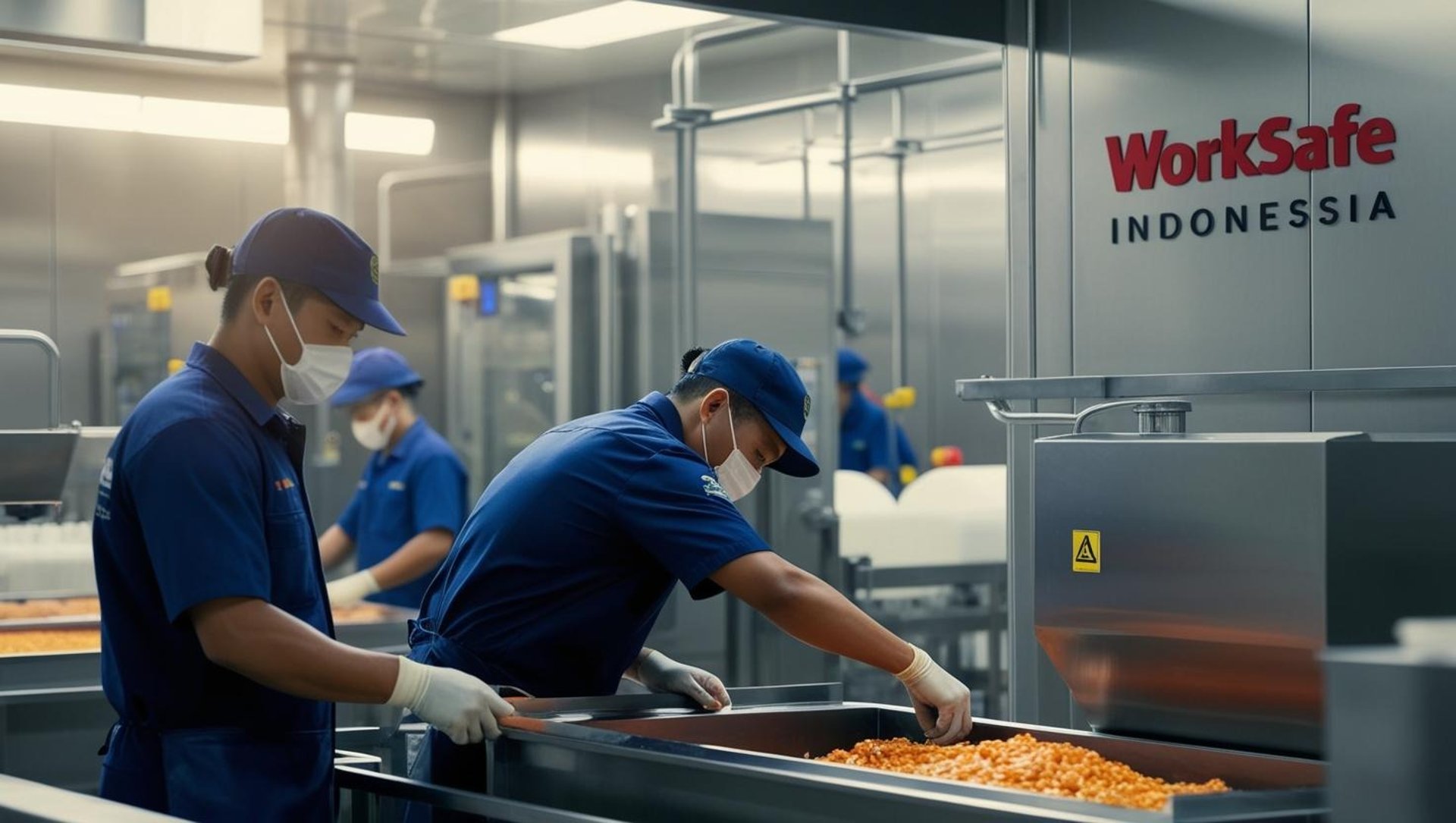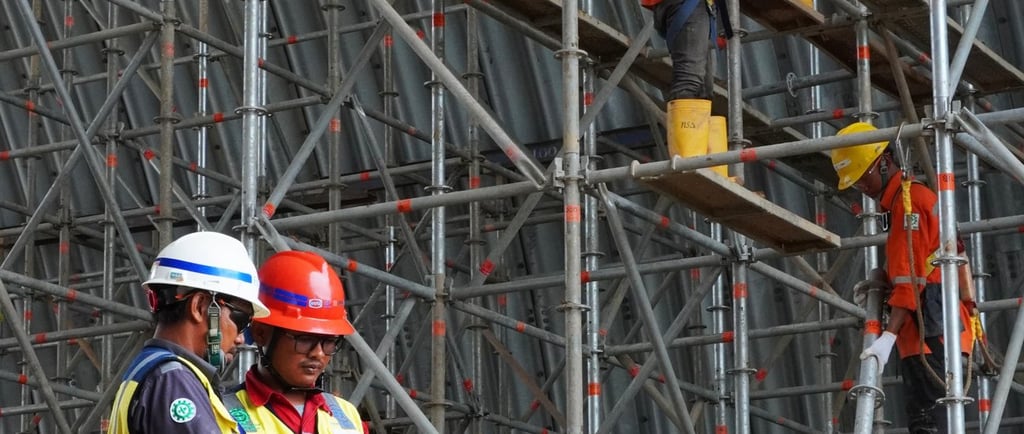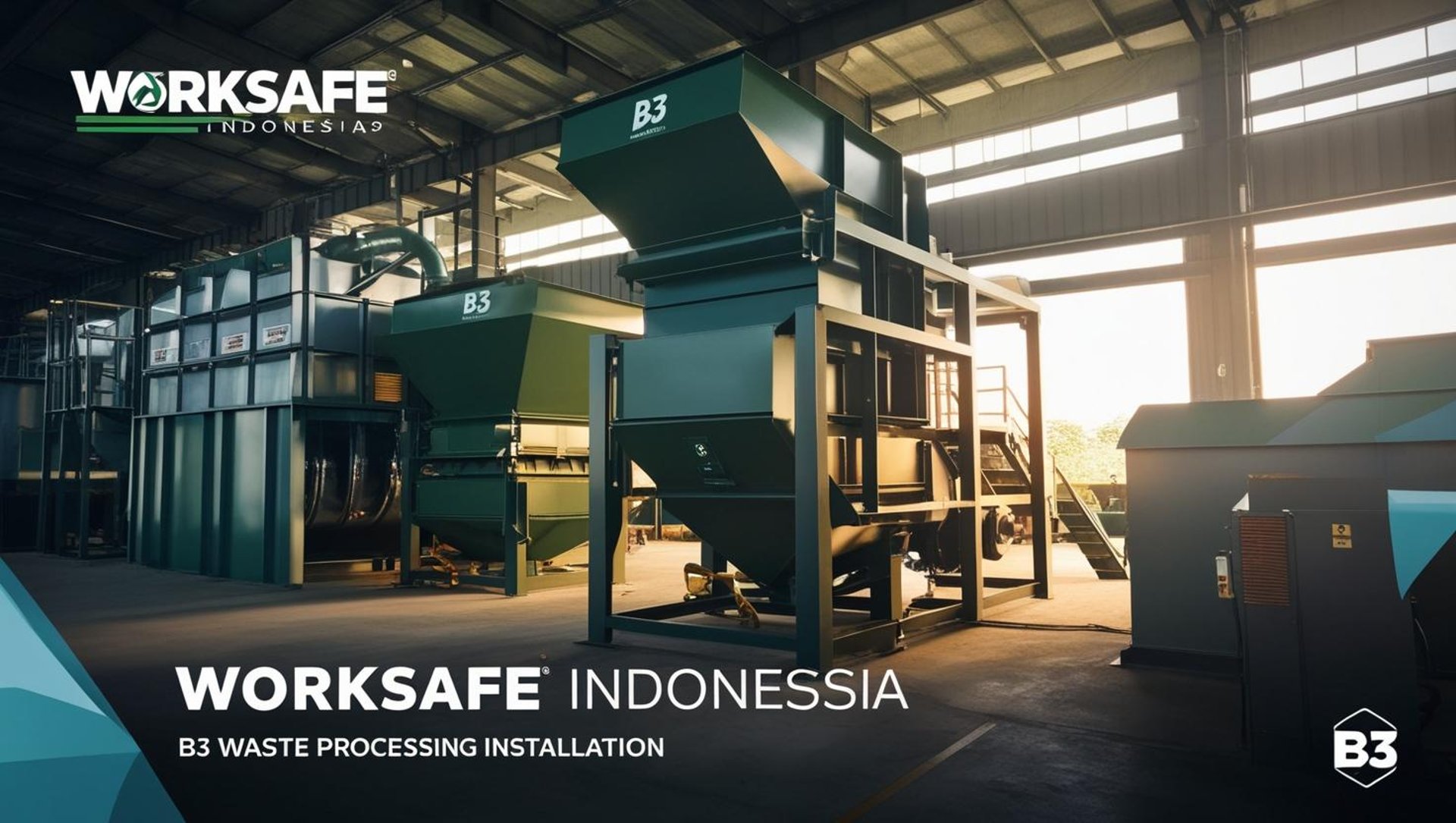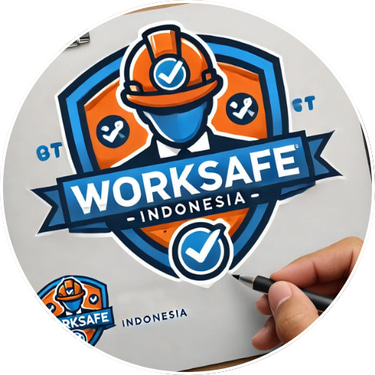
Promoting All About Safety, Health and Environmental
Understanding Scaffolding in Construction: Purpose, Types, and Safety
Understanding Scaffolding in Construction: Purpose, Types, and Safety In the construction industry, scaffolding is one of the most important safety and support systems. Whether used for high-rise buildings, bridges, or industrial maintenance, scaffolding ensures workers can operate at height with stability, security, and efficiency.
Ridho Sitohang
4/29/20252 min read


Understanding Scaffolding in Construction :Purpose, Types, and Safety
Worksafe Indonesia – Keep Safe, Be Safe !!
In the construction industry, scaffolding is one of the most important safety and support systems. Whether used for high-rise buildings, bridges, or industrial maintenance, scaffolding ensures workers can operate at height with stability, security, and efficiency.
What Is Scaffolding?
Scaffolding is a temporary structure erected to support workers and materials during construction, maintenance, or repair of buildings and infrastructure. It provides a secure platform for performing tasks at various heights and ensures the safety of both workers and the work being done.
Main Functions of Scaffolding in Construction
1. Safe Access to Heights
Scaffolding gives workers safe and convenient access to elevated work areas that would otherwise be difficult or dangerous to reach.
2. A Stable Working Platform
It offers a flat, stable surface for workers to move freely, operate tools, and handle materials.
3. Increased Efficiency
With scaffolding in place, tasks can be completed faster and more accurately due to easier mobility and better access.
4. Load Distribution
Scaffolding helps evenly distribute the load of workers and materials, reducing the risk of overloading weak structural points.
5. Protection from Falls
When properly installed, scaffolding includes guardrails, toe boards, and anchorage points to prevent falls — one of the most common construction accidents.
Common Types of Scaffolding
Tube and Coupler Scaffolding
Flexible and adaptable to various shapes and heights, ideal for complex structures.Frame Scaffolding
Easy to assemble and widely used in residential and commercial projects.Mobile Scaffolding
Equipped with wheels for mobility, suitable for indoor or short-duration tasks.Suspended Scaffolding
Hung from the top of a building, commonly used for exterior finishing or window cleaning on high-rise structures.
Scaffolding Safety Guidelines
Erected and dismantled only by trained personnel
Regular inspection before use
Guardrails, planking, and anchorage must be secured
Never exceed the scaffold’s load capacity
Use personal protective equipment (PPE), especially fall protection
Conclusion
Scaffolding is more than just a work platform — it's a critical part of construction safety. Using the right type of scaffolding, installed correctly and used responsibly, can significantly reduce risks and ensure smooth project execution.
At Worksafe Indonesia, we are committed to promoting safe scaffolding practices as part of a broader culture of workplace safety.

